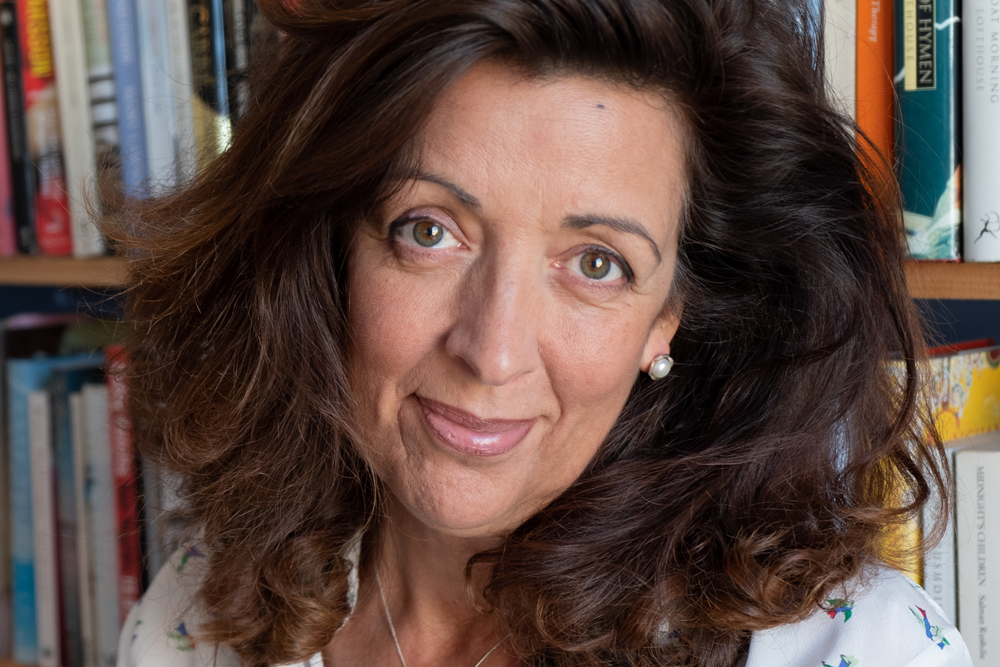Louise Doughty is an award winning author of nine novels. Her previous bestseller Apple Tree Yard has been adapted into a successful television series for the BBC starring Emily Watson. Doughty completed her MA in Creative Writing at UEA and was recently awarded an honorary doctorate from the university. Her latest novel Platform Seven is out now.

Every novel begins twice.
The most obvious beginning is when the author starts to write: a line or a paragraph – some dialogue, a thought, a visual image, perhaps.
The novelist commences writing, the novel begins: not necessarily where it begins, mind you. It might begin a third of the way through, or with a scene that floats around in the chronology of the book before settling, like an errant butterfly, in the place that pleases it best.
My last four books have all begun at the beginning, which does tend to keep things simple. Whatever You Love began with a scene in which the police come to a woman’s door to tell her that her child has been killed in a hit and run accident. Apple Tree Yard opens with a scientist on the witness stand at the Old Bailey, giving evidence in her own trial; Black Water with a man lying awake in a hut in a rural Indonesia, listening to the rain on the roof and convincing himself he is about to be killed.
Platform Seven began for me with a strong image of Peterborough Railway Station on a freezing cold winter’s night, a man entering the station and crossing the covered walkway, shoulders hunched, on his way to take his own life. I knew that the narrator of the novel was going to be the woman observing him do this and I knew that she was also dead but I had not the faintest idea how or why.
But each of these books had another beginning, one that occurred a long time ago, when the seed of an idea was planted, even though I had no idea at that point in my life that I would end up a professional novelist. Platform Seven actually began around thirty-five years before I started writing it.
I had spent the whole of my childhood in the same small town in the East Midlands and when I left to go to university in Leeds, my route home involved changing trains at Peterborough Railway Station. After five years in Leeds, I did the MA in Creative Writing at UEA and the journey back home from Norwich also involved changing trains at Peterborough Railway Station. Following my year at UEA, I moved to London for the rest of my adult life, and as a non-driver my journey back to visit my parents was always – yes, you’ve guessed it – changing trains at Peterborough Railway Station. I spent many a cold winter night there, inadequately dressed and shivery, and my standing joke was that if I had been bad and went to Purgatory when I died, I would find myself trapped on Peterborough Railway Station. Clearly the idea stuck – and I found myself writing a scene from the point of view of a ghost to whom that has happened some three and a half decades after I had first make the joke.
What this means is that we are all carrying multiple potential novels around inside us, sometimes for many years before we even know we can write. They are there, lying in wait, for what? For some impetus or desire to bring them out, accompanied with the technical ability and facility of language to give them expression? Sometimes, they seem to be waiting for a catalyst event, what one friend of mine calls ‘the lightbulb moment’. My joke about Peterborough Railway Station as a metaphor for Purgatory may have been a seed planted in my youth – but if there was a lightbulb moment, it was probably some time around the death of my mother, my last surviving parent, a loss that released me from having to pass through the Station, released me as my ghost, a young woman called Lisa, is released, when the mystery of her death is solved. The novel began then, even though it had begun thirty-five years before. Every novel begins twice.
I wonder what else is dormant, inside, waiting for the catalyst that will give it shape and form.
It’s a mysterious, albeit heartening thought.
Don’t miss Louise Doughty at Noirwich this year for the launch of her latest novel Platform Seven.
On the hunt for exhilarating new crime fiction reads this autumn? Enter the Noirwich + The Crime Vault book bundle giveaway competition!
Read more ⟶We were honoured to welcome the award-winning Soviet-Ukrainian American and French novelist and artist Yelena Moskovich for the annual Noirwich lecture 2022. Read a transcript of their lecture here.
Read more ⟶UEA MA Crime Writing Graduate Helen Marsden reviews our 2022 event 'Murder Most Modern' with Scarlett Brade and Bella Mackie.
Read more ⟶UEA MA Crime Writing Graduate Helen Marsden reviews the Noirwich Lecture 2022, delivered by Yelena Moskovich.
Read more ⟶
The Crime Vault

Waterstones

National Centre for Writing
